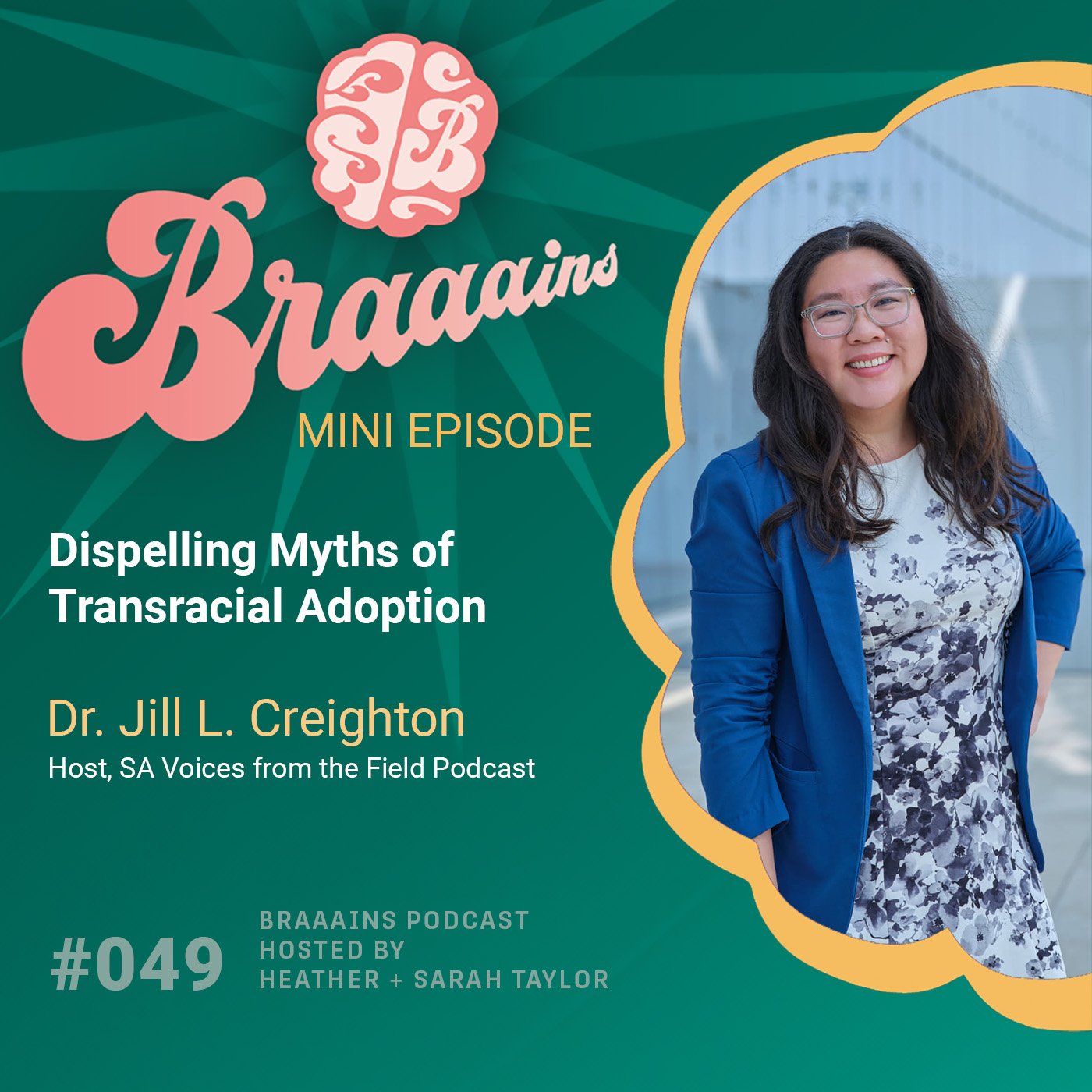Ep 049: Dispelling Myths of Transracial Adoption in Media
Today’s mini-episode is a conversation with Dr. Jill L. Creighton, a higher education professional and the host of SA Voices from the Field Podcast. She came to talk with us about her experience as a transracial adoptee and how she would like to see adoption represented on film and television.
Listen on Spotify | Amazon | iHeart | Any player
Dr. Creighton highlights the need for complex and authentic adoption stories that go beyond the heroism angle and focus on the adoptee's perspective. She also emphasizes the importance of diverse voices in storytelling and the need for allies to do their own work and research. Dr. Creighton calls for representation that captures the authenticity and complexity of adoption experiences, without reducing them to trauma or a search for roots. She also addresses the issue of tokenism and the need for inclusive leadership in the entertainment industry.
Listen to Braaains on these platforms (or anywhere you listen to podcasts!)
Music: Deppisch
Support this show: Patreon.com/BraaainsPodcast
ABOUT OUR GUESTS
Dr. Jill L. Creighton is a transracial Korean American Irish adoptee living in London, UK. Professionally, she has served in campus-based higher education positions since the late 2000s and has recently transitioned to leading global operations for a study abroad non-profit organization. You can also find her hosting the SA Voices from the Field Podcast, a show focused on providing free and accessible professional development content for higher education professionals in student affairs career pathways.
TAKEAWAYS
Adoption stories in mainstream media often focus on the heroism of the adoptive parents, which misrepresents the adoptee's experience.
Authentic adoption stories should capture the complexity and authenticity of the adoptee's experience, without reducing it to trauma or a search for roots.
Diverse voices and perspectives are essential in storytelling, and allies should do their own work and research to support marginalized communities.
Tokenism perpetuates oppressive environments and limits the complexity of human stories.
Inclusive leadership in the entertainment industry is crucial for creating authentic and inclusive narratives.
REFERENCES
Shows and films referenced: Dan in Real Life, Grey’s Anatomy (Maggie’s Story)
People in media who also have a transracial adoptee identity include Lana Condor and Kristen Kish
Other episodes you’ll enjoy:
The Handmaid’s Tale, This is Us, and Adoption - Episode 048
CBC’s virgins!, Immigration, and Bicultural Identity - Episode 032
Investigating Inequality Across Film and TV - Episode 041
Listen to recent episodes on Apple Podcasts:





